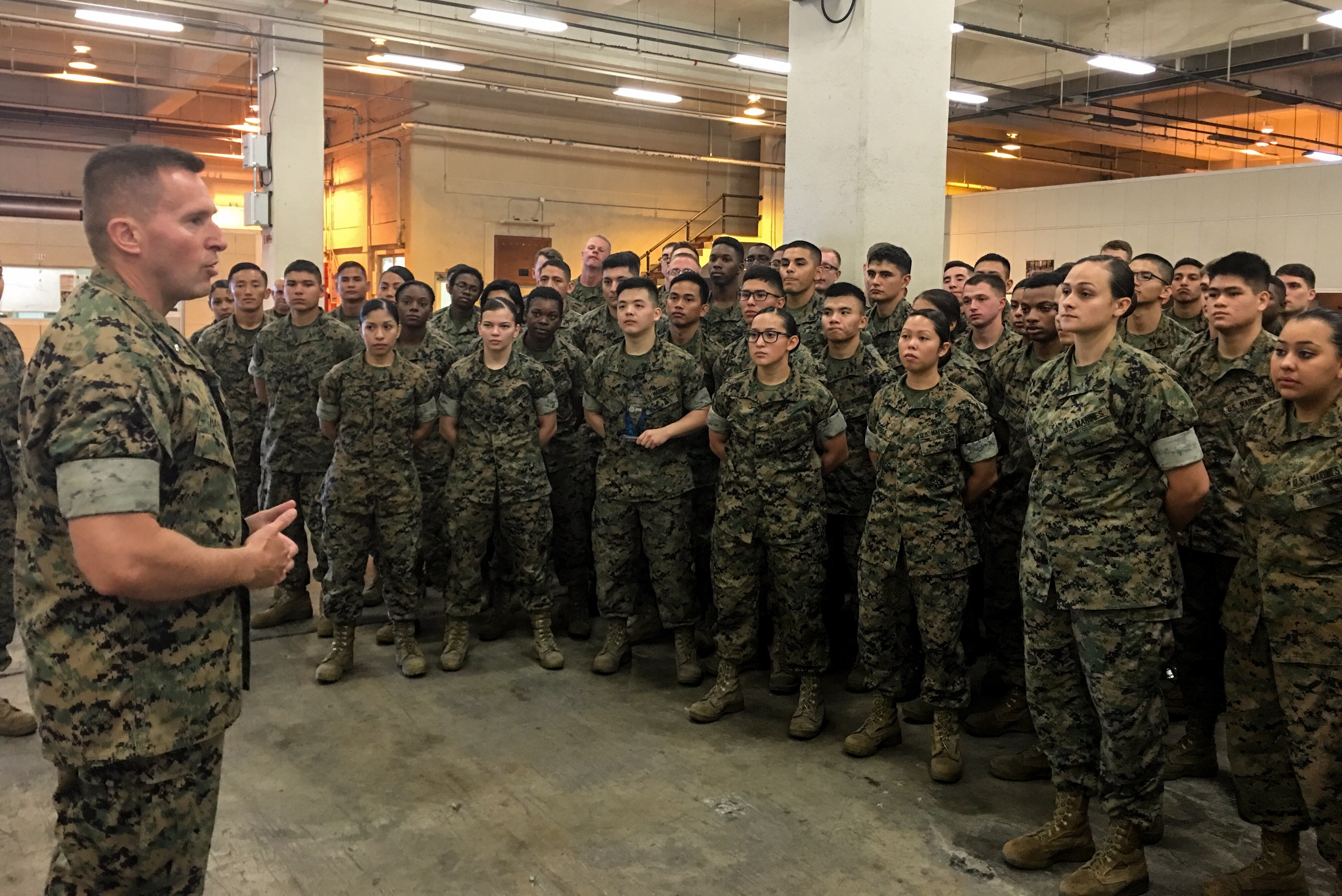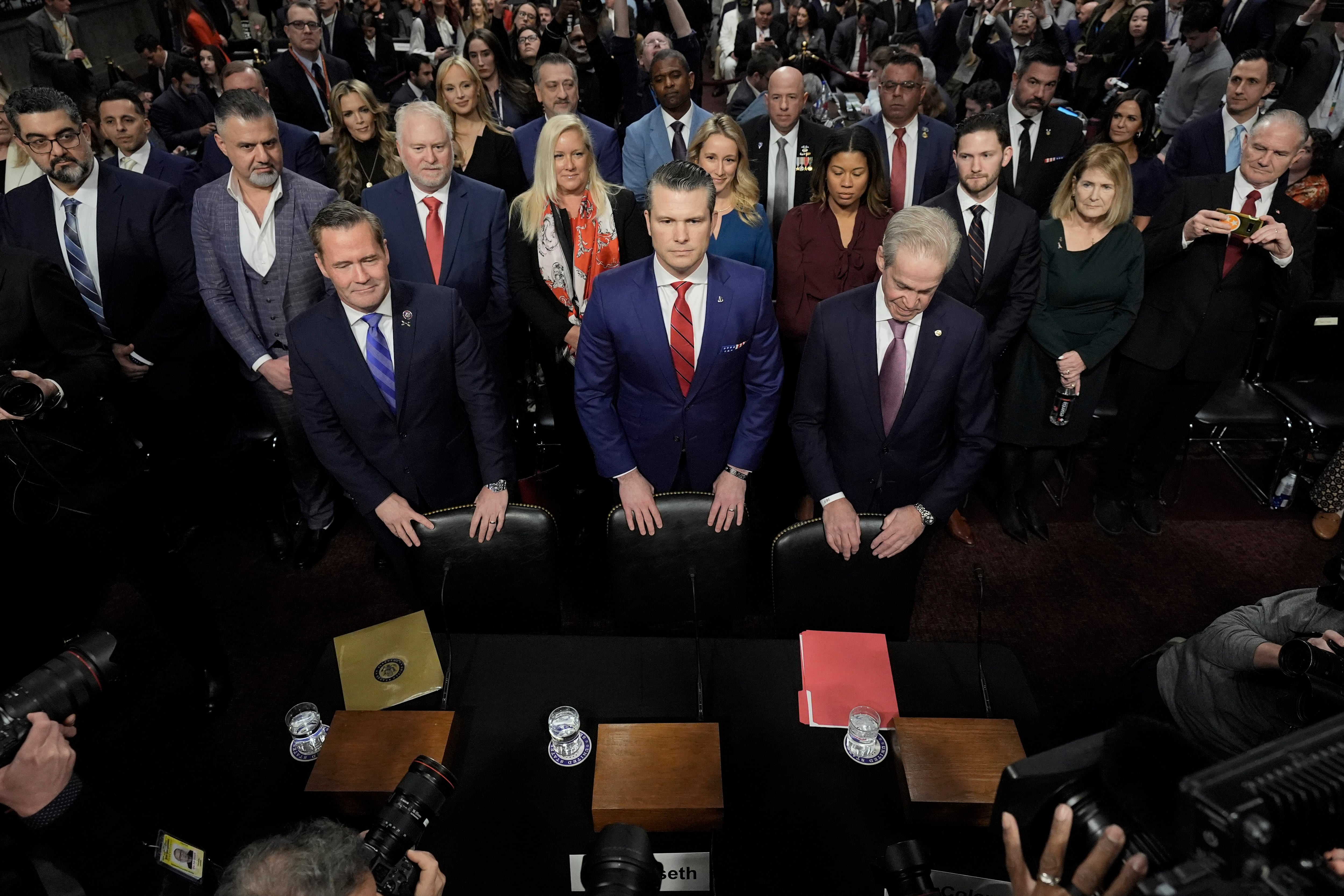Fed up with a cumbersome process and ancient doctrine, a Marine officer major and his supply management unit set out to fix a broken system. Their efforts have saved the Marine Corps millions — and they've has now been awarded the 2015 Department of Defense Award for Supply Chain Excellence.
The annual award honors state-of-the-art developments, adoption of best supply chain practices, and significant improvements in supply chain management. Maj. Timothy Fretwell and 3rd Supply Battalion's supply management unit certainly fit the bill.
The Marines were recognized Monday at an April 18 award ceremony scheduled to take place during the National Defense Industrial Association’s 32nd Annual National Logistics Forum in Washington, D.C.
The Okinawa, Japan-based team overhauled the way the supply management unit categorized and procured parts based on war fighters’ needs. The endeavor soon caught the attention of leadership, and was included in a Marine Corps Times article that highlighted the commandant’s call for innovative ideas to improve the service Corps.
It is refreshing to see Marines recognized for creative ideas and bold initiatives, Fretwell told Marine Corps Times. The unit thought it would take a few years before anyone took notice of their hard work, he said, so the DoD-level award was unexpected. not only from service and enterprise-level commands but also from the Marines themselves developing creative ideas and working hard day-in and day-out at the company and below levels to get the job done."Still, Fretwell said a DoD-level award was rather unexpected.
"The command was taken by complete surprise upon receiving news of this award," Fretwell said. told Marine Corps Times. "In comparison to the typical winners, which are higher-level logistics headquarters with the ability to affect billions of dollars and entire services, our group of 218 Marines essentially acting as a grassroots disruptor was not expected to gain this much attention so quickly." We expected a few years to pass before anyone would take notice of the results. It is refreshing to see that the assistant secretary of defense for logistics and materiel readiness recognizes and awards bold initiatives not only from service and enterprise-level commands but also from the Marines themselves developing creative ideas and working hard day-in and day-out at the company and below levels to get the job done."
In SMU in June 2015, the supply management unit combined the talents of inbound personnel with some of the seasoned staff. The result was "a hungry group of individuals realizing the status quo was not good enough, and we could make positive change to improve how we do business," Fretwell said.

The Japan-based 3rd Supply Battalion's supply management unit made changes that cut their unit's inventory by $2.4 million. By July, they estimate a reduction of $18 million.
Photo Credit: Courtesy
With the support of battalion, regimental, and group leadership, the team came up with a solution that is expected to reduce inventory by $18 million by July, and helped forward stock more than 1,200 items in Japan and improved integration with Defense Logistics Agency distribution centers outside the continental U.S. These moves helped the Marines significantly cut wait times for in-demand supplies. This reduced average wait times from needed supplies from more than 15 days to about 11. For critical items, Fretwell and his Marines cut wait times from more than eight days to four. Additionally, the SMU’s overall fill rate improved from 56.6 percent to 67.1 percent, and the critical item fill rate improved from 58.6 percent to 68.3 percent.
The team worked with key agencies to mitigate wait times and risks and visited different units within III Marine Expeditionary Force to educate senior leaders and Marines about how they could help improve their supply chain.
"This initiative was different than others because we sat down and asked what really matters in what we do," Fretwell said. "..."Is it to keep high supply statistics similar to how SMUs have been operating since the 1970s, or is to make sure III MEF can execute its mission essential tasks and is prepared to fight tonight? We acknowledged that our III MEF warfighters were our sole focus. From then on, tThe team has not stopped striving for continued improvement through the development of complex databases to link our work to combat-essential items.""[We optimized] and better optimize our inventory [by] travelling the region and working with key agencies to negotiate with various sources of supply to mitigate wait times and risk, and educating units and senior leadership on why this matters and how they fit into the equation."
The initiative is not exclusive to III MEF, Fretwell said, as it enables intermediate supply activities to be more responsive to the commands they support.
That includes potential adoption of in-house analytical tools and training developed by Fretwell's the SMU team, which also recommended changes to Marine Corps policy to allow more freedom to stock inventory based on readiness drivers versus historical data, and further integration with DoD support agencies through formalized relationships at the unit level.





